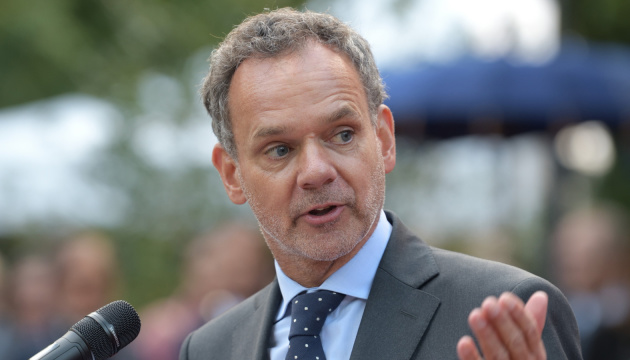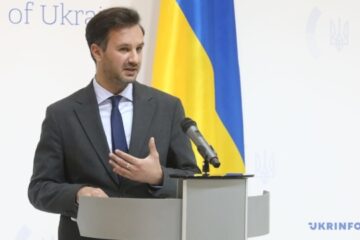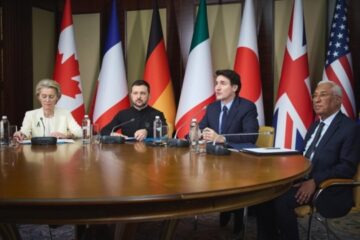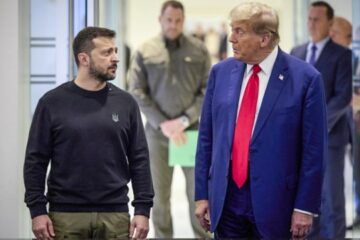Just a few days after the appointment of the new government, the Minister of Foreign Affairs of the Netherlands, Caspar Veldkamp, made his first visit to Ukraine as Foreign Minister to personally demonstrate unwavering support for the country, which has suffered from an aggressive and unprovoked attack. During this visit, he announced that the Netherlands would provide Ukraine with EUR 7 million as part of the Comprehensive Assistance Package coordinated by NATO and EUR 20 million to support energy infrastructure.
His connection to Ukraine has lasted for a long time – he first visited Ukraine back in the 1990s, and since then, he has made many visits in different roles, emphasizing his long-standing commitment to supporting the Ukrainian people on the international stage.
In the Netherlands, he also took part in events marking the third anniversary of the full-scale war, emphasizing the importance of international solidarity during this difficult time.
It is worth noting that the Netherlands is among the top five European countries in terms of military assistance to Ukraine. The total value of military support provided by the Netherlands to Ukraine has increased to nearly EUR 5.88 billion as of February 4, 2025.
The Netherlands has provided, among other things, F-16 fighter jets, combat vehicles, and air defense systems. The first Patriot systems were sent to Ukraine from the Netherlands.
In an interview with an Ukrinform correspondent in The Hague, Veldkamp spoke about the reluctance of the U.S. to involve Europe in peace talks, the Munich Security Conference, the meeting in Paris, the NATO summit in The Hague, and what needs to be done for a fair and lasting peace in Ukraine.
PEACE FOR UKRAINE MUST BE ACHIEVED THROUGH STRENGTH
– First of all, thank you very much for taking the time for our interview. Given the recent events and already three years of full-scale war, I would like to start with a question that concerns all of us today. In your opinion, when is peace possible in Ukraine?
Nothing should be decided about Ukraine without Ukraine, and nothing should be decided about Europe without Europe.
– Of course, we all wish for this war to be over as soon as possible. Until such time, our goal is to continue supporting Ukraine in whichever way we can, to make sure it has as strong a position at the negotiating table as possible: peace through strength. Nothing should be decided about Ukraine without Ukraine, and nothing should be decided about Europe without Europe. Because this is about our future, our security and the entire European security architecture. It’s hard to imagine a sustainable peace without robust security guarantees for Ukraine. That’s what current discussions are now focused on.
– What do you think about the meeting in Paris? What were the main issues discussed?
– The U.S. administration has made it clear that it wants European countries to take more responsibility. Given how quickly the situation is now developing, I think it was important for these European countries to come together on such short notice. Our Prime Minister Dick Schoof also took part in that meeting. It was a first meeting during which a couple of important matters were agreed upon, namely: Europe needs to step up its game, there should be peace through strength for Ukraine, and to be able to achieve that we need to increase our defense spending.
– What is your opinion on the U.S. reluctance to involve Europe in peace talks? What steps are the Netherlands prepared to take?
– The future of Ukraine and of our continent is at stake here. That’s why we have always said: no discussions on Ukraine without Ukraine, and no discussions on Europe without Europe.
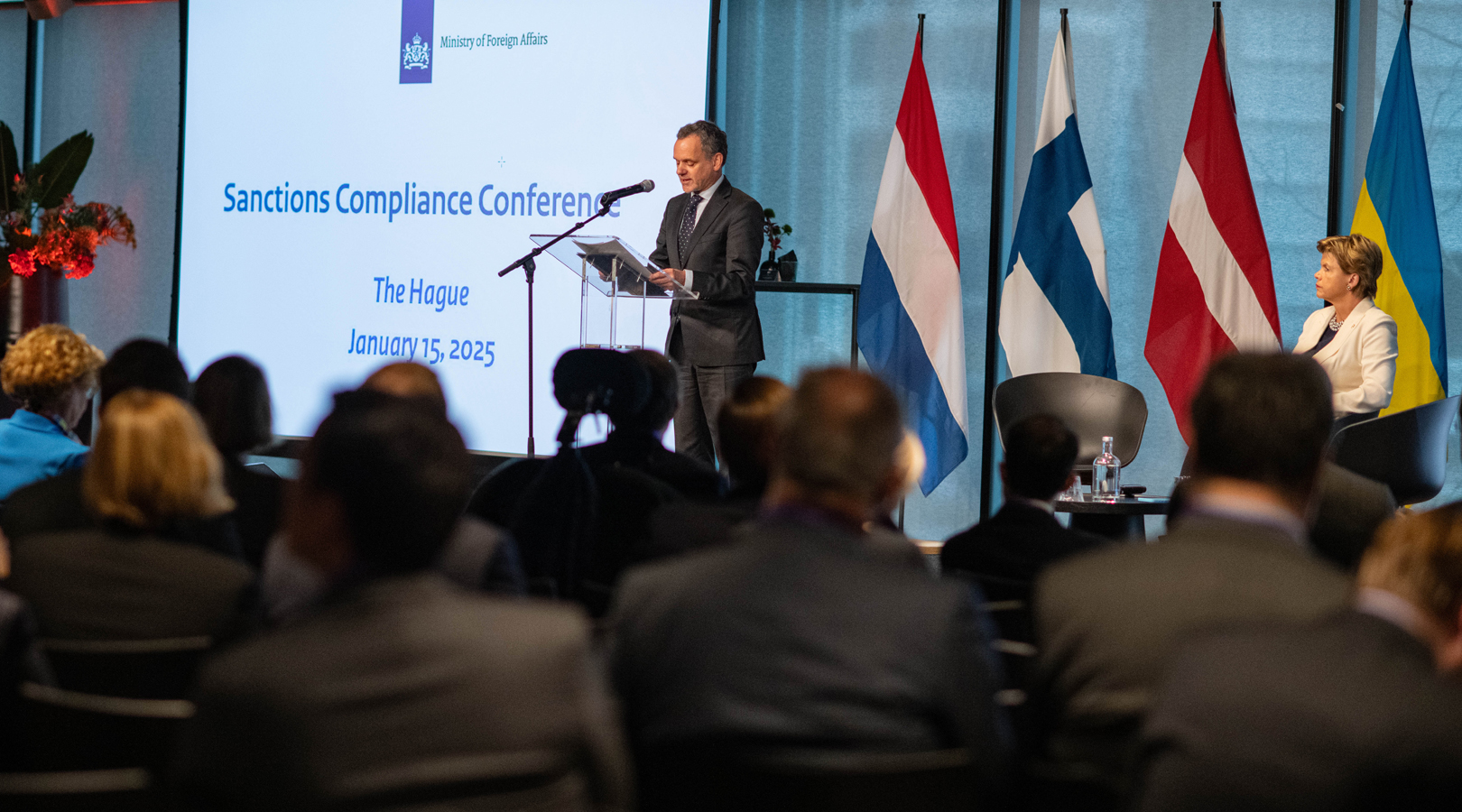
OUR SECURITY FREEDOM AND PROSPERITY ARE NOT GUARANTEED
– Is it true that the Netherlands is considering participation in a peacekeeping mission in Ukraine and is ready to provide its F-35s, navy, and Patriot systems for a potential peacekeeping mission in Ukraine after a possible ceasefire?
– Our position is that we don’t want to exclude anything in advance. A majority of our parliament also wants our cabinet to adopt a constructive position in these discussions. But as this is still a developing discussion, it’s too soon to say anything specific about this right now.
– How do you assess the results of the Munich Security Conference 2025? Who did you meet with during the conference? What was discussed during the meeting with Vladimir Kara-Murza?
– This year’s Munich Security Conference confirmed what we have long seen: our security, freedom, and prosperity are not guaranteed. The continued Russian war of aggression against Ukraine, the rise of new powers, technological changes: these developments pose great challenges. It was fruitful to discuss this in conversations with heads of government, ministers, NGOs, and the academic world. I was also delighted to see Vladimir Kara-Murza as a free man at the MSC, after years of unjust imprisonment. We discussed his and his wife’s courageous fight for a free, democratic Russia and their pursuit of justice for all political prisoners.
– President Donald Trump signed an executive order imposing sanctions against the International Criminal Court. What can the Netherlands do to help the Court continue to function?
– We regret the executive order imposing sanctions on the International Criminal Court. The Court’s work is essential in the fight against impunity, including with regard to crimes committed in Ukraine. As host country of the Court, we have specific obligations to facilitate the Court’s functioning. The Dutch government is committed to fulfilling these obligations.
NEGOTIATIONS UNDERWAY WITH 40 COUNTRIES TO ESTABLISH SPECIAL TRIBUNAL
– What are the prospects for holding Russia and its leadership accountable for starting the war?
– We cannot allow the invasion of a sovereign nation and the resulting suffering of the Ukrainian people to go unpunished. The Netherlands has been leading international efforts on ensuring justice for Ukraine. In The Hague, prosecutors from different countries are working together in the International Centre for the Prosecution of the Crime of Aggression to gather evidence on the war. We are currently in talks with around forty countries to set up a special tribunal that can use that evidence to prosecute Russian military and political leadership for the war against Ukraine. As of April last year, Ukrainians can submit claims on damage they have suffered as a result from the war to the Register of Damage for Ukraine, which is located in the Hague. And together with Ukraine, the Netherlands is now also chairing the process to set up a claims commission which will judge these claims, with the ultimate goal that Russia will pay for the damage it has inflicted. All of this will take a lot of work and – as is unfortunately the case with ensuring justice – a lot of time. But we are making progress. And we will remain committed to doing what we can to achieve justice and accountability for Ukraine.
– How do you assess the role of international courts, such as the International Criminal Court, in holding Russia accountable for violations of international law?
– Although the International Criminal Court cannot prosecute the war itself, the crime of aggression, it does play an important role in the process of holding individual Russians accountable for international crimes committed in Ukraine, including President Putin, former Minister of Defence Shoigu and Chief of the General Staff of the Armed Forces Gerasimov.
– Media reports say that a special tribunal for Putin will be established based on the Council of Europe in 2025. What do you think about this? And will the special tribunal be created in The Hague?
Several countries, including the Netherlands, have been working together with Ukraine to establish a special tribunal for the crime of aggression.
– As I mentioned earlier, the ICC plays an important role in the prosecution of individuals responsible for international and war crimes committed in Ukraine. In that regard, they have also issued an arrest warrant against President Putin. The ICC does not, however, have jurisdiction over the crime of aggression – the fact that Putin invaded Ukraine. That’s why several countries, including the Netherlands, have been working together with Ukraine to establish a special tribunal for the crime of aggression. We have offered to host this tribunal in The Hague, on the condition of sufficient political and financial support from other countries. Just recently, on February 4, an important step was taken in Brussels to find common ground on the key elements of what this aggression tribunal should look like.
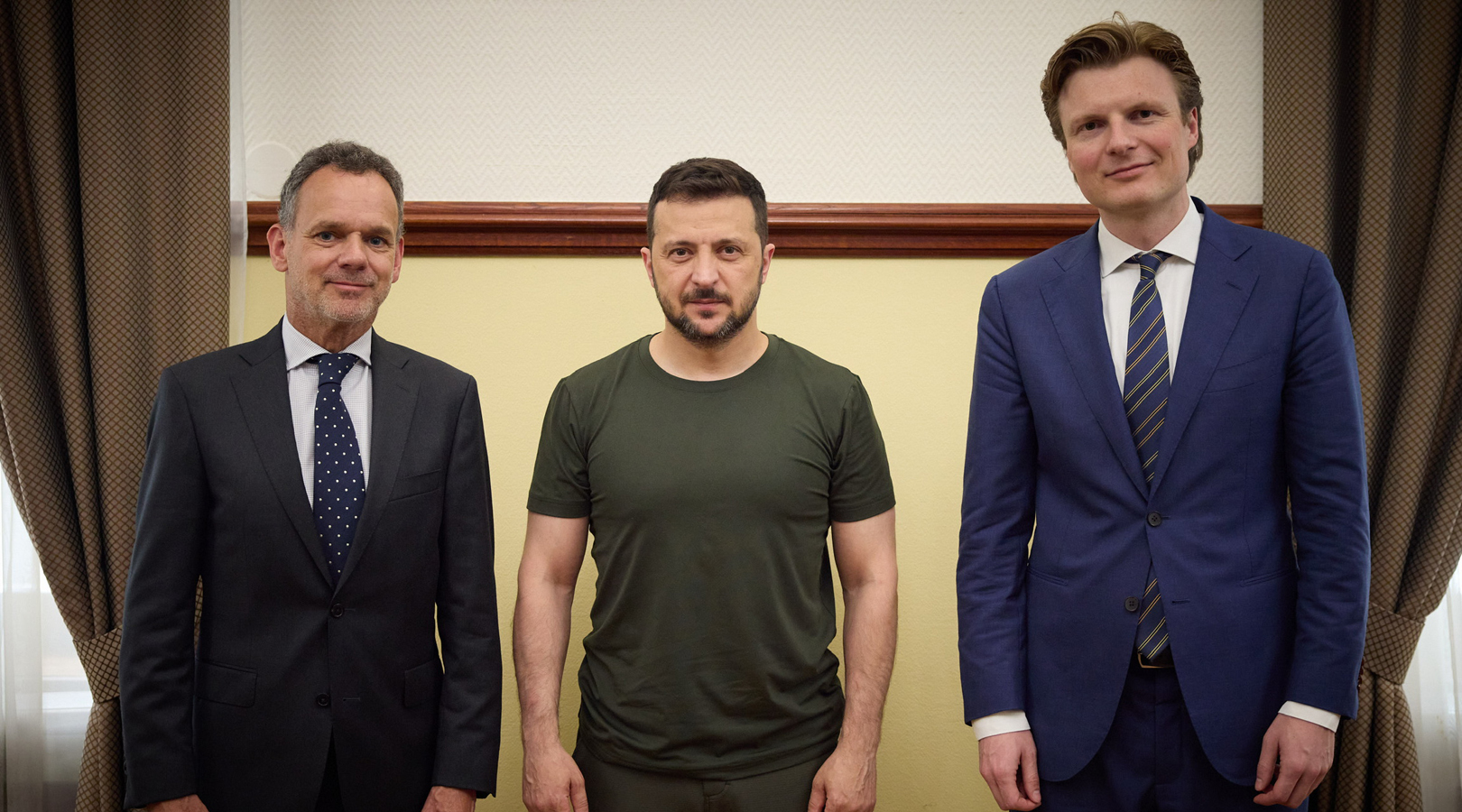
NO TABOOS FOR TAKING ACTION AGAINST PUTIN’S MILITARY AGGRESSION
– In January, a sanctions conference was held in The Hague, where government officials, leading experts, and representatives from the private sector discussed compliance and strengthening restrictions: how they impact Russia, why the aggressor still manages to bypass them, as well as new challenges and innovations in sanction policies. Could you share your impressions of the event? What mechanisms are the Netherlands using to support strengthening sanctions against Russia?
– The Netherlands has been a frontrunner in discussions on sanctions against Russia ever since the start of the war. We have always said that there are no taboos for us when it comes to taking measures to counter Putin’s war efforts. As a part of that, we have also been emphasizing the importance of compliance; making sure we prevent sanctions being circumvented. In January we organized a special conference to discuss how we can be more effective in implementing current sanctions and preventing circumvention, both nationally and within the EU. During the conference, there was a special exhibition showcasing Russian weapons that included Western components, to call special attention to this issue.
– The day after the conference, you traveled to Ukraine. Could you tell us about your visit to Ukraine? What issues were discussed, and what was achieved?
Ukraine can continue to count on our support: militarily, politically, financially and morally.
– Indeed, right after the sanctions conference I traveled to Kyiv. It was my second time visiting your country as Foreign Minister, and just like the first time, I was impressed by the incredible bravery, resilience and determination of the Ukrainian people. I’ve expressed this in my conversations with President Zelenskyy and Minister Sybiha, and I assured them that Ukraine can continue to count on our support: militarily, politically, financially and morally. You deserve that. Because we must not forget that your country is fighting for our security too. During my visit, I’ve also spoken with veterans about this. Their stories of the harsh reality at the front lines have stayed with me.
– A few days after the new government was appointed, you and the defense minister were already in Ukraine. What was your message?
– Yes, our first visit was to Ukraine, only a few days after this cabinet was installed. That was a very deliberate choice: we wanted to show that this cabinet is committed to continuing support for Ukraine and tell the Ukrainian government this in person. That was my first visit as Foreign Minister. But I have visited Ukraine several times in various capacities, also in better times…
WE’LL CONTINUE TO LOOK INTO WHAT MORE WE CAN DO IN TERMS OF MILITARY SUPPORT
– You have visited Ukraine many times. When did you first visit Ukraine? How do you assess the current situation in Ukraine and the impact of the war on stability in Europe?
– It saddens me greatly to see how your beautiful country has been ravaged by three years of terrible war. I first visited Ukraine back in the nineties, and I have paid many visits since then. During one of my previous roles, as executive director of the European Bank for Reconstruction and Development, I worked on the financing of Ukrainian businesses and state-owned enterprises, especially after the large-scale invasion in 2022.
Making sure that Ukraine’s economy keeps on running is another front behind the actual battlefield front, so to say.
I was closely involved in the decision-making that was taking place at that time to ensure that investments in Ukraine would continue after the invasion, and I’m glad that since then 6,2 billion euros has been deployed to Ukraine. I thought it was important to do this, because making sure that Ukraine’s economy keeps on running is another front behind the actual battlefield front, so to say. And, when I’m on the night train from Przemyśl to Kyiv for instance, I realize the efforts it took to keep UZ Railways afloat financially. Ukraine is near and dear to me personally.
– Ukraine has received a new batch of F-16s. The Netherlands has provided significant assistance to Ukraine. Thank you very much! How many F-16s has Ukraine received in total? Are the Netherlands planning to provide Ukraine with additional military aid, and in what form might this be?
– The Netherlands has pledged 24 F-16 fighter jets to Ukraine, several of which have already been delivered through the Air Force Capability Coalition and are currently defending your airspace. We have also contributed 18 Dutch F-16s to the European F-16 training center in Romania where Ukrainian pilots are being trained. We’ll continue to look into what more we can do in terms of military support. And in doing so, we have to be creative as well; team up with other countries, for instance, see what we can do together. This is an ongoing discussion within the EU as well.
– In June, The Hague will host the NATO Summit. What does this mean for the Netherlands? How is the country preparing? What are your expectations for the NATO summit in The Hague?
The security situation on our continent has changed for the worse, and that requires us, European countries, to invest more in our own defense capabilities.
– It’s going to be our first time organizing the NATO summit since the alliance was founded in 1949. We expect around 6000 delegation members, 2000 journalists from all over the world, and 300 people involved with the Public Forum. It’s going to be an enormous task, but we’re honored that we can organize this year’s summit. I also see it as an opportunity to showcase our commitment to international peace and security, and take responsibility as an ally. The security situation on our continent has changed for the worse, and that requires us, European countries, to invest more in our own defense capabilities. I expect this to be an important topic of discussion in the run-up to and during the summit. The decisions that will be made during the summit will have a direct impact on our security.
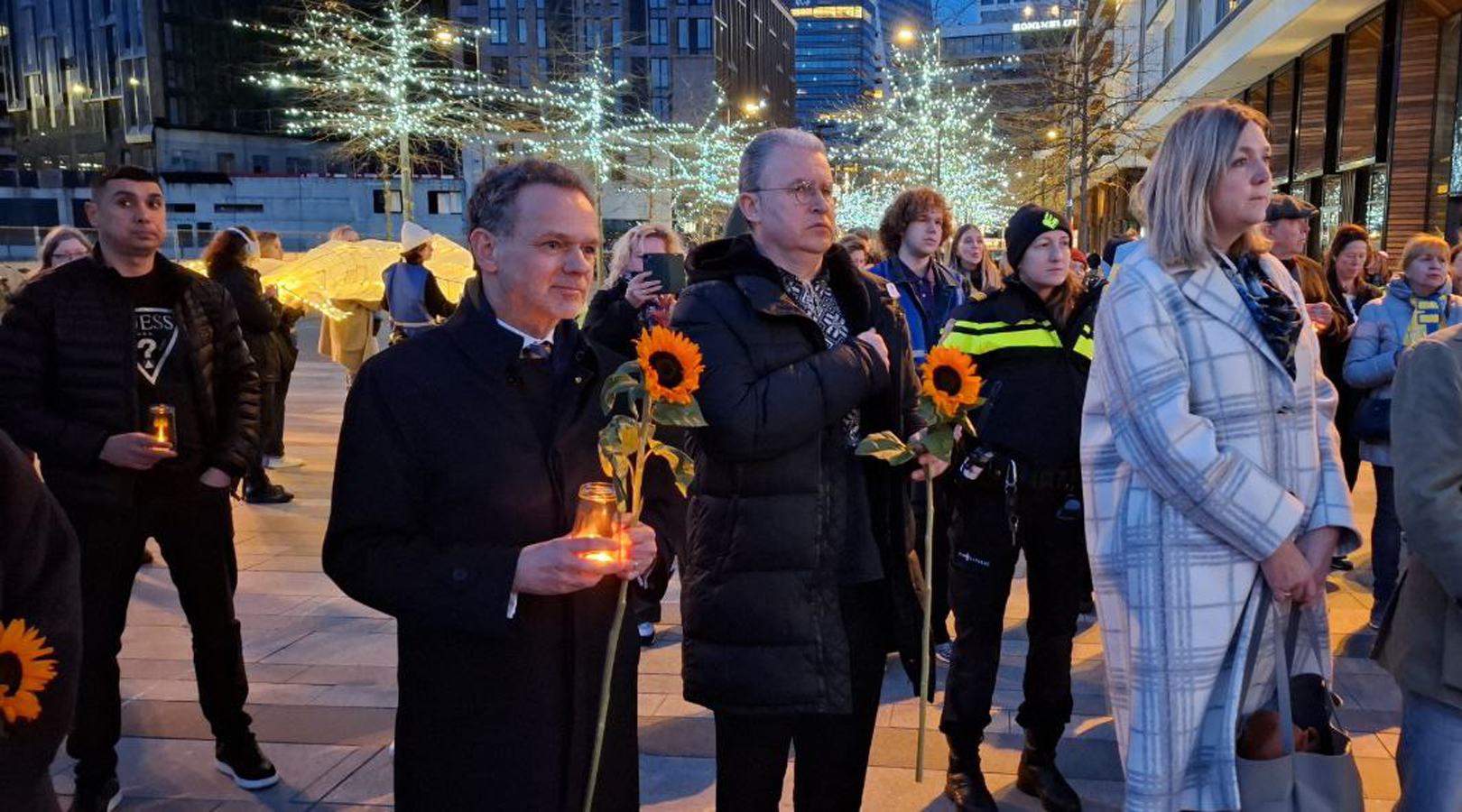
NOTHING ABOUT UKRAINE WITHOUT UKRAINE, NOTHING ABOUT EUROPE WITHOUT EUROPE
– It is widely believed that Ukraine’s accession to NATO is one of the most significant security guarantees for our country. What do you think about this?
Ukraine will join NATO once the conditions for accession are met and once there’s consensus among allies on accession.
-The Netherlands has always been very clear on this: Ukraine’s future is in NATO. Ukraine will join once the conditions for accession are met and once there’s consensus among allies on accession. Until such time, our goal is to continue supporting Ukraine in whichever way we can, to make sure it has as strong a position at the negotiating table as possible: peace through strength. Nothing should be decided about Ukraine without Ukraine, and nothing should be decided about Europe without Europe.
– What are the main steps the Dutch government is taking to support Ukraine during this war? Can you tell us about the volume of aid already provided, Dutch initiatives related to economic and humanitarian assistance to Ukraine, and achieving justice?
– Since 24 February 2022, the Netherlands has allocated over 17 billion euros to support for Ukraine, of which over 10 billion euros is spent on military support. So far, we have contributed F-16s, parts of Patriot systems, drones, ammunition, non-lethal assistance and more. But we’re also doing a lot beyond military support. For instance, we also substantially support Ukraine’s recovery efforts, international efforts to hold Russia accountable for starting the war and liable for the resulting damage, and Ukraine’s domestic efforts to prosecute the many war crimes committed in Ukraine. We also provide practical assistance to the efforts to find and identify the missing Ukrainian children.
– How do you see the role of the Netherlands in Ukraine’s post-war reconstruction, and how can the international community assist in this process?
– I think that it is first and foremost important that you, the Ukrainians, decide over what future you see in store for yourself, and how you want to go about recovery and reconstruction. We don’t want to do things for Ukraine without consulting the needs and wishes of Ukrainians themselves. Ultimately, this is about your vision for your country. It’s up to us, to the international community at large, to see how we can support you. Institutions such as the International Monetary Fund and the World Bank will have an important role to play as well.
WE NEED AN AGREEMENT THAT IS JUST AND DURABLE
– When do you think the war in Ukraine could end? Is it possible to reach a peace agreement? What should it be like?
– Of course, we all wish for this war to be over as soon as possible. Too many lives have been lost and destroyed. It goes without saying that a quick deal could cost us dearly – Ukraine in the first place, but also wider Europe. So we need an agreement that is just and durable. We are not there yet and I don’t think speculation will help. For now, the most important thing is that, until the war ends, you can count on the Netherlands to stand with Ukraine.
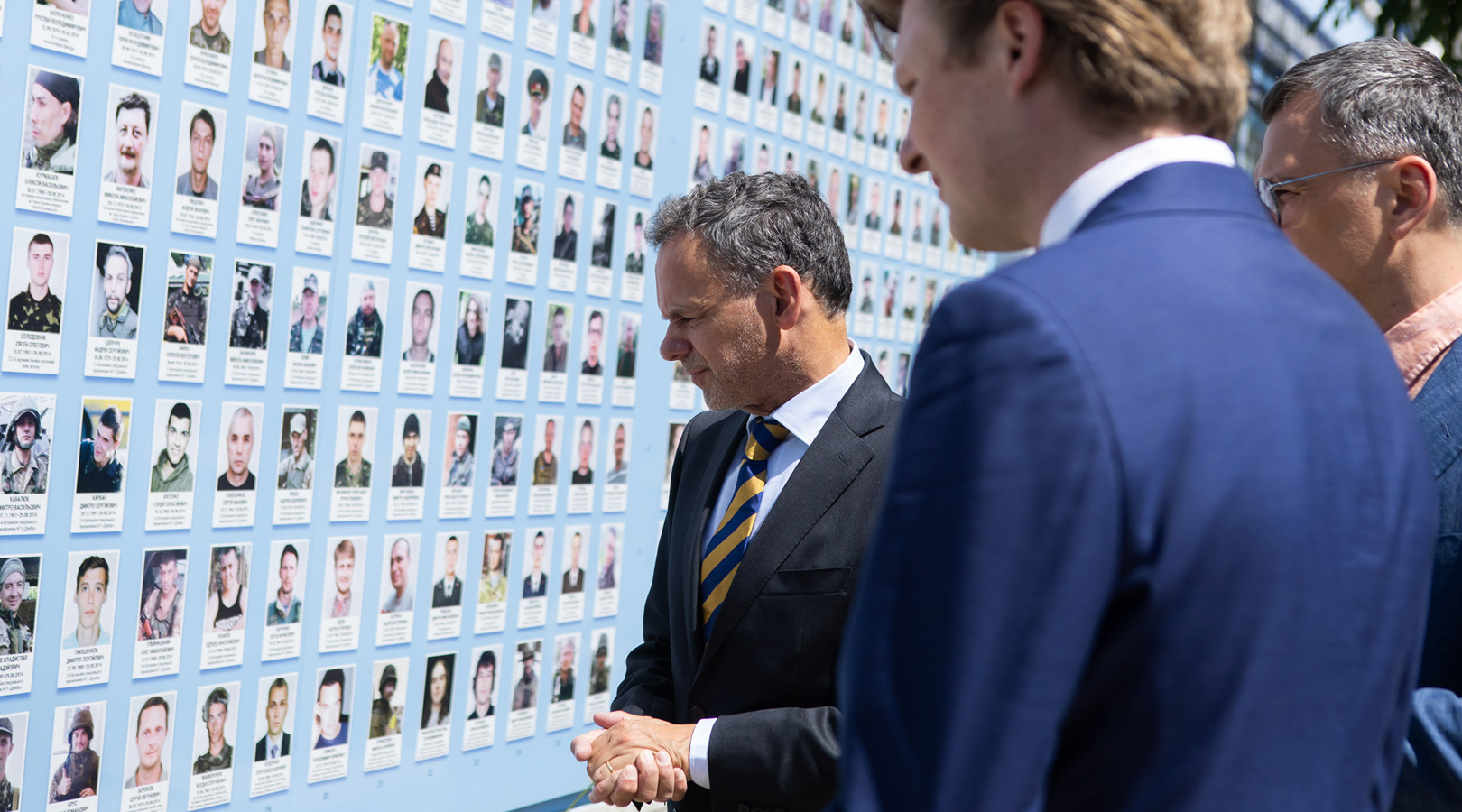
– What do you consider to be the biggest challenges for the Netherlands and Europe in the context of this war in Ukraine?
Last year, Russia was allegedly involved in at least 37 attempts to sabotage, vandalism, foreign interference and even murder in Western Europe.
– The security situation in Europe has drastically changed since Russia’s invasion of Ukraine in 2022. Russia’s aggression stretches beyond the atrocities it is inflicting in Ukraine. Last year, Russia was allegedly involved in at least 37 attempts to sabotage, vandalism, foreign interference and even murder in Western Europe. By comparison, in 2022 there were only 6 alleged attempts. These incidents increase both in number and severity. Putin wants to rewrite the rules of the game and he disregards international agreements, international rule of law, and the sovereignty of other nations. In other words; we can no longer take our security for granted. Given that context, we must do more in Europe to strengthen our deterrence and defense against these threats.
– What would you wish for the Ukrainian people?
– My heart goes out to all Ukrainians on this day that marks the sad anniversary of three years of war. I greatly admire your incredible strength and perseverance. During my visits I have seen and heard how brave and resilient you are, how you continue on with your lives and fighting for your country, despite the continuous hardships and Russian attacks. We wish to see justice for the Ukrainian people. Know that the Netherlands stands with you. Slava Ukraini!
Iryna Drabok, The Hague
Photos provided by the author and the Dutch Ministry of Foreign Affairs
Source: Caspar Veldkamp, Minister of Foreign Affairs of the Netherlands

